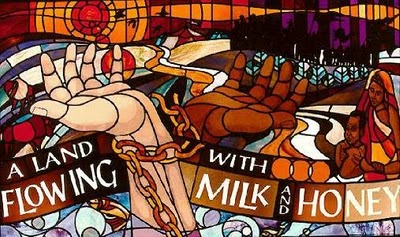This week I read an interesting article by George Pixley and Clodovis Boff called “The Option for the Poor in the Old Testament”. It was part of a collection of essays in the book Voices from the Margin: Interpreting the Bible in the Third World. In this essay Pixley and Boff look to see how the story of the Exodus. They are interested in finding ways that this ancient story can find contemporary resonance, and seek to address how the oppressed in the world today should view the Biblical story of liberation
Pixley and Boff believe that the exodus story of liberation has continuing significance for the oppressed of the world today, that it is not just a story about what God did, but in someways points to what God is doing today. They believe that the God of the Bible is Characterized by a preferential option for the oppressed, and that this option is not just for the children of Israel, but for all the oppressed in all times. The idea that God was the God of Israel because of God’s relationship with the Patriarchs in the past, in their view, was added latter. The original reason God intervened in their life was actually because they were oppressed. In fact God is constructed in this article as a “voice from the east” which enlightens the minds of the Israelites in Egypt to class conciseness.
Pixley and Boff go so far as to say that because the way God becomes the God of Israel is connected to his liberation of the Israelites in the Decalogue THEREFORE people today must unite with those who are celebrating liberation in order for THE LORD to be their God.
This is a perspective I have heard from many corners of the “Liberation Theology” camp before, and I think they make a good point. The main thing that seems to be missing in this is a respect for scripture holistically. Pixley and Boff parse up the scriptures into different camps, but have no real way of knowing where and when certain parts of scripture came into the final redaction of the Genesis story we have today. They make assumptions about the text they simply don’t have the information to come to a conclusion on and in essence craft a text in their own image.
I think that the interest of Pixley and Boff is very helpful to the conversation on how the church is to move forward on issues of oppression, but their methodology is so subjective it leaves me very little that I can actually learn from. My questions at the end of the day are simple.
1) In what ways can we read the canon, not just the early traditions, and still find the message of liberation?
2) How does the doctrine of election, which is cast aside by Pixley and Boff, inform our understanding of the Missio Dei?














